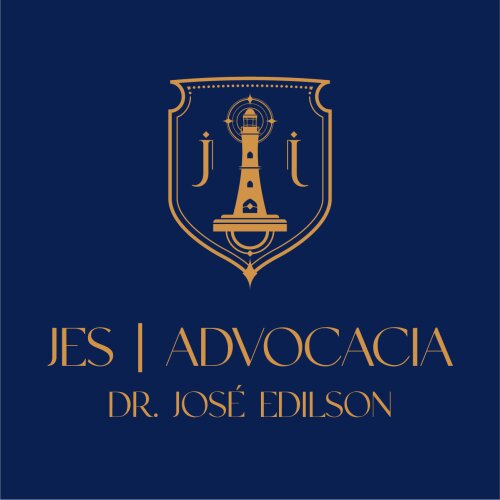Best Adoption Lawyers in Santo Andre
Share your needs with us, get contacted by law firms.
Free. Takes 2 min.
Free Guide to Hiring a Family Lawyer
List of the best lawyers in Santo Andre, Brazil
About Adoption Law in Santo Andre, Brazil
Adoption in Santo Andre, Brazil, is a legal process that enables individuals or couples to become the legal parents of a child who is not biologically theirs. Governed by the Brazilian Civil Code and the Statute of the Child and Adolescent (ECA - Estatuto da Criança e do Adolescente), adoption aims to provide a stable, loving home for children who have been abandoned, orphaned, or whose biological parents are unable to care for them. The adoption process is regulated by local Family Courts, which oversee and approve applications to ensure that the best interests of the child are always prioritized.
Why You May Need a Lawyer
Adoption is a complex legal procedure that often requires expert guidance. It is essential to have a lawyer if you are navigating the following situations:
- Understanding which type of adoption (national, international, independent, or stepchild adoption) is appropriate for your situation.
- Preparing and submitting essential documents to the Family Court in Santo Andre.
- Dealing with issues or opposition from biological parents or other relatives.
- Ensuring all legal rights and obligations are properly addressed throughout the adoption process.
- Facing delays, disputes, or complications with authorities or social services.
- Clarifying your rights as an adoptive parent, including those related to inheritance, citizenship, and parental authority.
Local Laws Overview
The adoption process in Santo Andre adheres strictly to the guidelines established by the ECA and relevant municipal regulations. Key aspects include:
- Eligibility: Prospective adoptive parents must be at least 18 years old, regardless of marital status, and must be at least 16 years older than the child to be adopted.
- Consent: Adoption typically requires the consent of the biological parents, unless they are unknown, have lost parental rights, or are unable to provide consent.
- Judicial Approval: All adoptions must be approved by the Family Court in Santo Andre. The process involves social and psychological evaluations to determine the suitability of the adoptive family.
- Waiting List: Applicants usually join a waiting list maintained by the court, which matches children in need of adoption with suitable families.
- Irrevocability: Adoption is final and irrevocable, establishing the same legal rights as a biological parent-child relationship.
- Confidentiality: The process ensures the privacy of all parties involved, especially concerning the child’s origin and history.
Frequently Asked Questions
What is the first step to begin an adoption process in Santo Andre?
The first step is to file a petition with the local Family Court, either individually or as a couple. This petition includes all necessary documentation about your background and intent to adopt.
Do I need to be married to adopt a child in Santo Andre?
No, both single individuals and married couples can legally adopt, as long as they meet all other eligibility criteria.
How long does the adoption process usually take?
The duration can vary significantly, often taking one to three years, depending on several factors including the waiting list, court schedules, and case-specific circumstances.
Can international residents adopt in Santo Andre?
Yes, foreign residents may adopt, but international adoption involves additional procedures and requirements, including authorization from Brazilian authorities and compliance with both countries’ legal systems.
What documents are required for adoption?
Documents typically include identification, proof of residence, proof of income, health certificates, a criminal background check, and, if applicable, marriage certificates and additional references.
Can I choose the child I want to adopt?
While prospective parents can indicate preferences such as age and gender, the final match is subject to the child’s best interests and the decision of the Family Court and social services.
Is contact with biological parents allowed after adoption?
Generally, adoption in Brazil is confidential, with no legal requirement for contact between biological and adoptive families unless specifically determined by the court.
What role do social workers play in the adoption process?
Social workers perform home studies and psychological evaluations of prospective parents to ensure children are placed in a safe and nurturing environment.
Can an adopted child inherit from adoptive parents?
Yes, adopted children have the same legal rights as biological children, including inheritance and family name rights.
What happens if a biological parent wants to reclaim parental rights?
Once the adoption is finalized and approved by the court, it is irrevocable and legal ties with the biological family are permanently severed.
Additional Resources
If you are seeking more information about adoption in Santo Andre, the following resources can be helpful:
- The Family Court of Santo Andre (Vara da Infância e Juventude) - Handles all legal matters relating to adoption locally.
- Statute of the Child and Adolescent (Estatuto da Criança e do Adolescente - ECA) - The national legislation governing adoption and child welfare.
- Centro de Referência Especializado de Assistência Social (CREAS) - Provides social and psychological support services to families involved in adoption.
- Local Bar Association (Ordem dos Advogados do Brasil - OAB Santo Andre) - Can help you find qualified legal professionals with experience in adoption cases.
- Social services and nongovernmental organizations focused on child welfare and adoption advocacy.
Next Steps
If you are considering adopting in Santo Andre and need legal assistance, here is how you can proceed:
- Consult with an experienced family law attorney to discuss your situation and eligibility for adoption.
- Gather and organize all necessary documents to prepare your application for submission to the Family Court.
- Schedule an appointment with the Family Court or legal aid office for guidance on the formal adoption process.
- Be prepared to participate in interviews, home visits, and assessments conducted by social workers and court officials.
- Stay informed about your rights and responsibilities as an adoptive parent by accessing official resources and legal counsel.
- Maintain open communication with your legal representative throughout the process to address any questions or concerns as they arise.
Adoption is a rewarding journey that transforms lives. With the right legal guidance, you can confidently navigate the process and provide a child with a loving and secure home.
Lawzana helps you find the best lawyers and law firms in Santo Andre through a curated and pre-screened list of qualified legal professionals. Our platform offers rankings and detailed profiles of attorneys and law firms, allowing you to compare based on practice areas, including Adoption, experience, and client feedback.
Each profile includes a description of the firm's areas of practice, client reviews, team members and partners, year of establishment, spoken languages, office locations, contact information, social media presence, and any published articles or resources. Most firms on our platform speak English and are experienced in both local and international legal matters.
Get a quote from top-rated law firms in Santo Andre, Brazil — quickly, securely, and without unnecessary hassle.
Disclaimer:
The information provided on this page is for general informational purposes only and does not constitute legal advice. While we strive to ensure the accuracy and relevance of the content, legal information may change over time, and interpretations of the law can vary. You should always consult with a qualified legal professional for advice specific to your situation.
We disclaim all liability for actions taken or not taken based on the content of this page. If you believe any information is incorrect or outdated, please contact us, and we will review and update it where appropriate.














